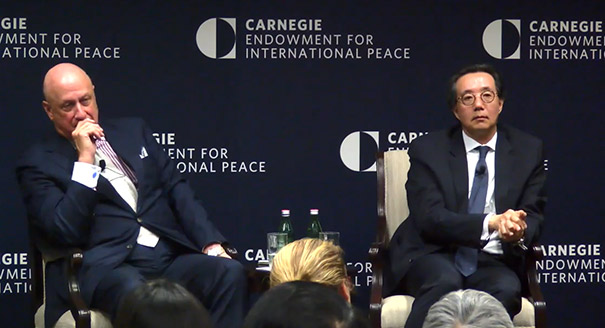(June 6th, 2016) Chung Min Lee of the Carnegie Endowment for International Peace writes:
“…., Asia’s rise has captured the popular imagination for three decades. By most hard-power measures, such as gross domestic product, trade volumes, technological prowess and military capabilities, Asia has emerged as the world’s third pillar, along with the United States and Europe. Indeed, many commentators have argued that the 21st century will not only be dominated by key Asian states such as China, India and Japan, and major middle powers including South Korea, Vietnam and Indonesia, but also that the region as a whole is on its way to eclipsing the West.’’

“But …. it’s timely to point out that such linear conceptions of Asia’s inexorable rise are misleading and incomplete, given the magnitude of political, security and socioeconomic problems confronting Greater Asia. With the Asian economic juggernaut coming to an end, due to lower growth in China, an aging Japan and South Korea, and India’s ongoing problems with corruption and a bureaucracy that impedes structural reform, the continent must be viewed from another angle: as a department store of many of the world’s gargantuan political and military challenges. Indeed, unless Asia’s strategically consequential states can significantly mitigate, if not resolve, the region’s political and military deficits, Asia’s rise will never be completed.’’
“There is no doubt that Asia has made enormous progress over the past half-century, but it’s time to wake up to the continent’s political, security and strategic quagmires….Asia must undertake wrenching political reforms, including the embracing and strengthening of universal values, for an Asian century to truly dawn. Asia has risen, but it is far from reigning.’’